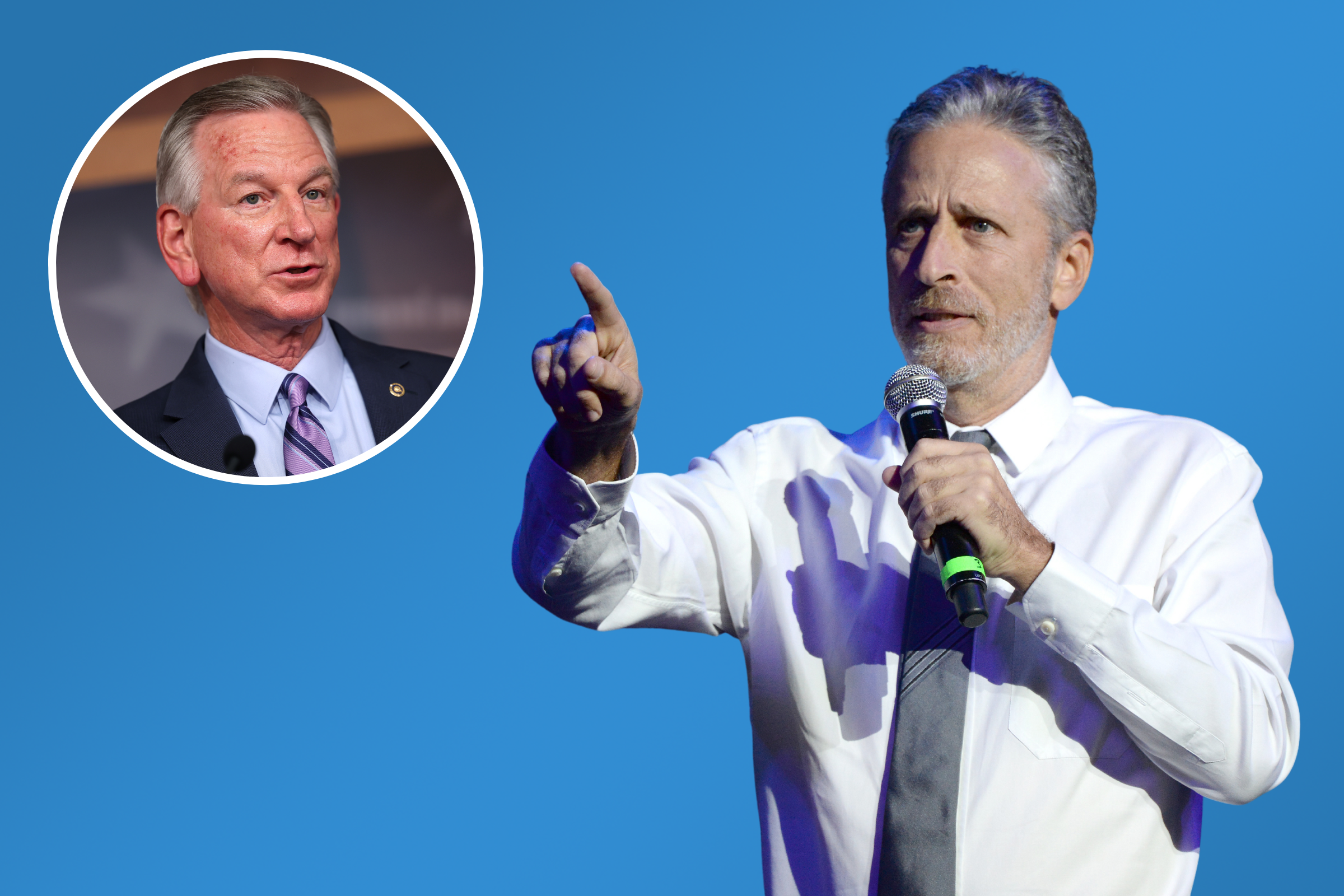Moderating a presidential debate is usually an exercise in painting by numbers. News anchors you vaguely recognize from Dancing with the Stars take the stage to ask a series of canned and clippable questions about every newsy issue, all while neatly attempting to delineate between "social issues," "foreign policy," and, mostly ominously, "economics."
Candidates don't have much flexibility in this arrangement. But in tonight's Republican presidential primary debate, and in former president Donald Trump's accompanying interview with Tucker Carlson, the candidates seeking the highest office in public life should reject the false choice between "culture war" and "bread and butter" issues. Instead, they should advance a vision for American life that protects normal people from a decadent elite that assaults them on all fronts—cultural, economic, and geopolitical.
First, every candidate must remember that they are on a stage competing for the nomination of the Republican Party—the only organized political vehicle for the interests of every American who believes our woke and weaponized regime aims to destroy every traditional value and practice it can get its hands on. There is no room for mealy-mouthed compromise with the tiny minority of cultural revolutionaries that have seized every major institution in American life. The GOP candidates must credibly and authentically demonstrate that even though they hail from the upper echelons of the elite class, they are not a part of it. They must firmly stand with the vast majority of the Republican base, which is sick of leaders who constantly drift with the leftward lurch of our ruling class.
That means recognizing the real scope of the threat. As I've argued before, the category of "cultural issues" in politics has long been woefully narrow, and should, in fact, encompass most, if not all of public policy. Take trade, typically categorized as "economic policy," for example. When it comes to America's trade deals, the dry, technocratic approach of expanding free trade historically amounted to cultural warfare against vast swathes of middle America. Ruling elites argued that blue-collar work was outdated and that the desire to preserve prosperity-powering jobs in energy, manufacturing, agriculture, and construction was revanchist and retrograde.
That argument couldn't have been further from the truth, and in an era of de-globalization, the masters of the universe in our policymaking class are now engaged in a rear-guard action to re-shore our supply chains. Populist and conservative forces in the electorate fought the outsourcing of our industrial base in the first place. Candidates seeking the GOP nomination should make a full-throated defense of America-First trade policies, but not in the technocratic style of Washington think tanks. Tonight, on that stage in Milwaukee, in the heart of the Midwest, they should frame their economic support for the American people as a rejection of the failed cultural campaign our elites have advanced for decades.

Immigration is another point where conventional GOP talking points fall short. Many candidates will be tempted to talk in anodyne ways about border security while ignoring what is essentially a Biden administration-approved cultural and economic invasion of the American homeland. Elites may shriek and scream, but candidates vying to be serious voices on immigration should not shy away from the full spectrum of consequences mass immigration poses for our nation and its people. Yes, we need to secure the border, but candidates should be honest that uncontrolled migration, both legal and illegal, diminishes wages for the working class, causes cultural disunity in an already fractious country, and poses serious risks for the security of the American people. Our nation is not merely an economic zone for elites to become fabulously wealthy, it is an actual home for millions of families and their communities.
The most rarefied discipline in Washington D.C. is "foreign policy." Here, elites hide behind an alphabet soup of degrees, credentials, and visiting fellowships to advocate for endless American engagement abroad. Rarely do their own children fight and die in these wars; the working- and middle-class families who suffuse the Republican base are the ones who send their sons and daughters to die in wars of choice. Often the cause of these wars is parochial concerns of the elite class in America, whether it's to fight for the sacrosanct LGBTQ studies department at Kabul University, or to, as Tucker Carlson famously said, "make the world safe for banking." The old Republican Party would feature a debate where candidates competed to outdo each other on jingoistically pre-committing American troops to some far-flung foreign frontier. Today, candidates would be much better suited by emphasizing that we have plenty of concerns to focus on here at home, and advocate for a foreign policy that puts Americans' interests, not the interests of the elite foreign policy blob in Washington, first. Even foreign policy realists would do well to frame their restraint as consonant with the interests of ordinary Americans, rather than part of a new abstract ideological construct.
Our cultural institutions, corporate boardrooms, academic faculty lounges, and administrative state are all captured by left-wing ideologues who are indifferent at best and hostile at worst to the interests of the everyday Americans who will choose the next Republican nominee for president. Candidates seeking that nomination would do well to remember Patrick J. Buchanan's words at the 1992 Republican convention:
My friends, these people are our people. They don't read Adam Smith or Edmund Burke, but they come from the same schoolyards and the same playgrounds and towns as we come from. They share our beliefs and convictions, our hopes and our dreams. They are the conservatives of the heart. They are our people. And we need to reconnect with them.
That posture doesn't lend itself to canned lines about corporate regulations, or our naval presence in the South China Sea, or the Federal Reserve's interest rates. But candidates who adopt that posture authentically and seriously will find that the base is more than willing to give them political power, so they can fight for their interests against all the forces allied against them.
Saurabh Sharma is president of American Moment and co-host of the Moment of Truth podcast.
The views expressed in this article are the writer's own.
Uncommon Knowledge
Newsweek is committed to challenging conventional wisdom and finding connections in the search for common ground.
Newsweek is committed to challenging conventional wisdom and finding connections in the search for common ground.
About the writer
To read how Newsweek uses AI as a newsroom tool, Click here.





